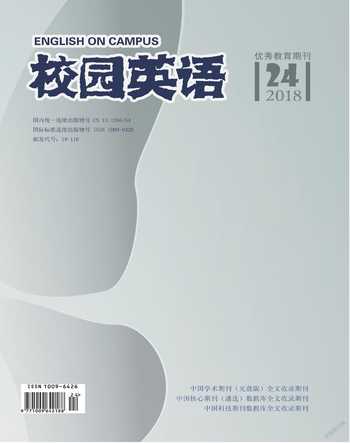The Influence of the Bible on Milton’s Paradise Lost
【Abstract】John Milton’s Paradise Lost is a political and religious epic. It’s subject to the impact of the Bible. This essay attempts to discuss how the Bible influences the greatest epic poem in English literature, centering around three parts of the theme of the poem—the fall of man, humanism and the image of Satan.
【Key words】the Bible; Paradise Lost; the fall of man; humanism; the image of Satan
【作者簡介】邓江雪,女,四川达州人,川北医学院讲师,硕士,研究方向:翻译理论与实践、英语教育、语言学理论。
The Bible is a collection of religious writings including two parts: the Old Testament and the New Testament. It records Judeo-Christian tradition which constitutes one of the two major components of European culture (the other one is the Greco-Roman element). Every phase of man’s life is touched by it, so that it becomes an indispensable ingredient in Western culture. John Milton, a Puritan poet and revolutionist of the English Bourgeois Revolution, is the most sublime figure in English literature. Of all his great works, Paradise Lost is the most complicated and most profound one, which wins him endless honor. It is indeed the only generally recognized epic in English literature since Beowulf and a heroic poem in Renaissance style. Without a doubt, the Bible had an immense influence on the writing of John Milton’s Paradise Lost in terms of the theme of the poem, the spirit of humanism the author pursues and the vivid image of Satan.
Paradise Lost is a long epic in 12 books, written in blank verse. The central theme of the poem is subject to the story of “the fall of man” from Genesis in the Old Testament. It tells how the first man and woman, Adam and Eve, show the first disobedience to God because of Satan’s temptation of Eve by eating the forbidden fruit from the Tree of Knowledge and how they are consequently punished by God and driven out of the garden of Eden ( the paradise ) to the ground from which they are taken. Satan ( the serpent ) and his followers are banished from heaven and driven into hell.
The purpose of John Milton for writing Paradise Lost is to “assert the eternal Providence and justify the ways of God to man”. It deals with revolt against God, with sin and fall, and with the possible salvation. However, “it should be made clear that Milton as a puritan did not have the least intention of making God a real tyrant to be hated and revenged upon” (Luo Jingguo, 1996: 204). It just presents the author’s views in an allegoric religious form, and makes the readers will easily discern its basic idea—exposure of the ways of Satan and justification of the ways of God to men. It is the reflection of the reactionary forces of Milton’s time and the passionate appeal for freedom.
John Milton is the last rearguard of the Renaissance and the primary promoter of Enlightenment. The love of every form of human culture and the steadfast devotion to the highest object in human life have shaped his entire career. In this poem he exalts the greatness of man, longing for free will and Christian liberty. He also looks at the problems of God and Providence with a view to understanding man’s work and man’s earthly happiness. “Through the love between Adam and Eve Milton expresses the humanist pursuit for happiness, that is, the spirit of Renaissance.” (ibid.) Humanism in Paradise Lost is the main idea the poet wants to explore. Resorting to describe the love between Adam and Eve the poet voices his enthusiasm for humanistic elements. Adam and Eve are created as persons of flesh and blood, embodying in them the humanist conception of man with all his dignity as the highest of all earthy living beings.
Satan, as the main character of Paradise Lost, is definitely impressive and powerful. He leads his followers to fight against God for their freedom. Even driven into hell, he is not a bit discouraged. When his adherent Beelzebub is wavering in the determination, he utters repeatedly and forcibly his indomitable will in Book 1 to defy God’s tyranny and plot revenge upon him. In fact, Satan’s rebellious speech in the poem expressed Milton’s own sentiments and an outpouring of his personal hatred for the restored monarch in the days of the Restoration:
As the above mentioned, the poet, as a Puritan, did not have the least intention of making God a real tyrant to be hated and revenged upon. Satan has an ambivalent character. Although he is sympathized in the epic, he and his followers are also condemned.
The great epic is written in an allegoric religious form, showing us the writer’s misery after the Restoration, and his determination for revolution, seeking for the possible salvation. The style of the epic is grand, the content is from the material of the Bible’s first part — the Old Testament. It is the result of the poet’s life-long classical and biblical study. It is due to this long great epic we can again get in English literature these brilliant images: Adam, Eve and Satan.
References:
[1]Milton,John.Paradise Lost.Ed.Alastair Fowler.London:Longman, 1968-1971:40-50.

